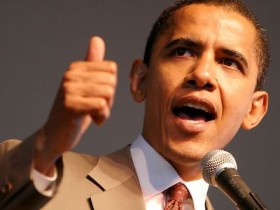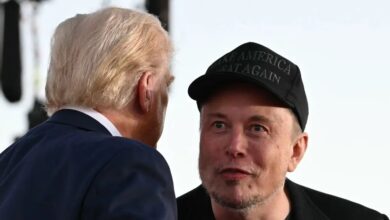 U.S. President Barack Obama is discovering that Napoleon’s warning of two centuries ago about a re-awakened China was prophetic.
U.S. President Barack Obama is discovering that Napoleon’s warning of two centuries ago about a re-awakened China was prophetic.
The significance of China’s re-awakening has short-term and long-term implications for the international community, especially for the U.S., which, following the Soviet Union’s collapse, had become accustomed to being the world’s major power.
However, the seemingly relentless increase in China’s importance over the past few years has meant China has become much more assertive in pursuing its objectives on a global basis, now going beyond purely trade and economic interests.
Obama is becoming aware of this new reality.
In a matter of a few days, he was on the receiving end of Beijing’s well-publicized anger for authorizing the sale of military equipment to Taiwan and for indicating his intention to meet with the Dalai Lama, Tibet’s exiled spiritual leader, on Feb. 18.
The announcement that Obama had approved a $6.4-billion sale of defence arms to Taiwan was immediately denounced by Chinese authorities. Foreign Ministry spokesman Ma Zhaoxu said the arms deal would damage mutual relations and would “unavoidably affect China-U. S. co-operation on important international and regional issues.”
He said Beijing would impose sanctions on American companies involved in the arms sale, including Boeing, a major player in China’s airline market.
The Chinese Defence Ministry said military exchanges with the U.S. would be suspended and co-operation on major issues reviewed.
While Beijing’s anger over the arms deal made headline news, the sale only includes defensive arms, not offensive, and, according to the Americans, was in accordance with the terms of the U.S.’s Taiwan Relations Act which ostensibly commits the U.S. to aid Taiwan against foreign aggression, i.e., Mainland China.
[adrotate group=”12″] “Whoever wins Pennsylvania will be president”
“Whoever wins Pennsylvania will be president” Pro-Western president wins in Moldova – EU relieved
Pro-Western president wins in Moldova – EU relieved Cem Özdemir wants to be the top candidate in the state elections
Cem Özdemir wants to be the top candidate in the state elections Musk donates millions to Trump – Harris speaks to Fox News
Musk donates millions to Trump – Harris speaks to Fox News